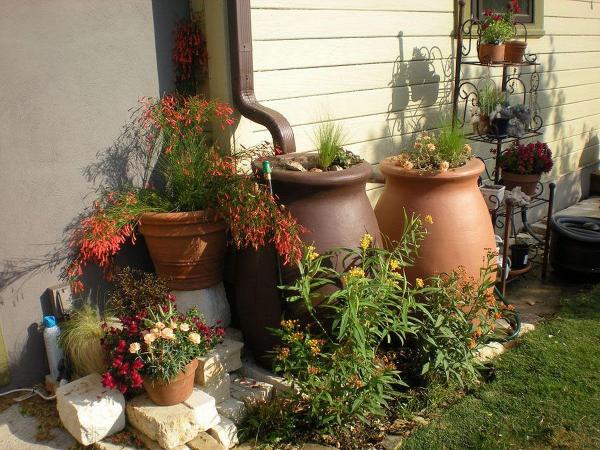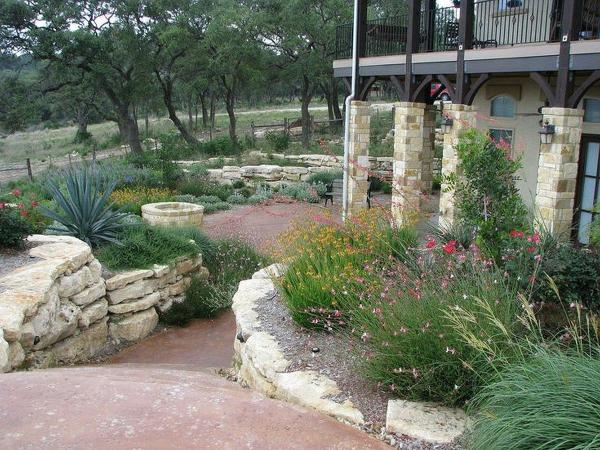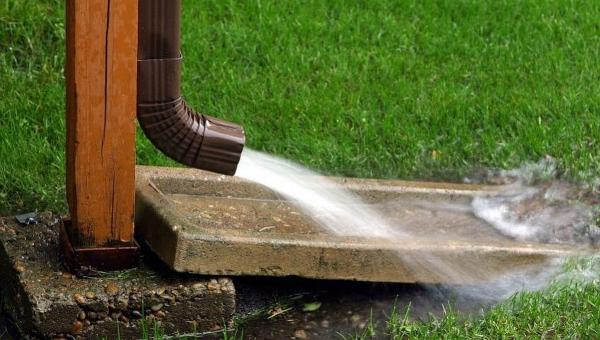Dripping Gardening
“The greatest threat to our planet is the belief that someone else will save it,” - Robert Swan, the first person in history to walk to both the North and South Poles.
We know there are many reasons to start a garden. Gardening can benefit us in several different ways, and having plants and flowers is obviously nicer to look at than just having a plain, boring, lawn. Among the many benefits it offers, I happen to believe that one little garden can save the world. If each of us can do one ‘something’ to help protect the planet, even one little garden at a time, those actions and those gardens, will all add up!
Gardening has been a passion of mine for nearly my entire life. I have enjoyed it so much as a hobby and I’ve been fortunate enough to earn my living writing about it as well. Some might think that when you’re immersed in something so much, you will start to take a few things for granted that less seasoned gardeners may still find fascinating. I’m happy to say that has never happened with me. I’m every bit as excited to spend time in a garden today as I was when I was first bitten by the gardening bug, and yes, that was a very long time ago.
Part of the reason for my never-ending obsession is that the more I know, the more I realize I don’t know…and that creates passion and thirst to immerse myself in it even more. As a lifetime student of gardening, nature and the environment we share, I find myself wanting to protect it and nurture it, to keep it pure and untarnished. With age often comes wisdom and the older I get the more I understand just how amazing Mother Nature truly is, and without even realizing it, I’ve been enlisted as one of her most devoted guardians.
Yes, I do this for me, so that I will have a place to go that was like the place I discovered when I first fell in love with gardening and the outdoors. I have children and grandchildren, I protect Mother Nature for them too, so that they won’t have to only imagine the wonders I’ve known. And for all the others; the ones who may never have the chance without help from people like me to look after her. This is why I’ve become so aware of the changes happening all around us, every day of our lives.
The natural resources that many of us still take for granted are diminishing, and it’s happing at a faster rate than ever before. Now do not get me wrong here, I am not blaming all of the planet’s ills on mankind. Truth is there are plenty of reasons for the changing environment. That does not mean, however, that we are totally blameless or that we should not take steps to become better stewards of this precious planet. I know it is by our hand, that much of what has been done may never recover. And although I know our earth is resilient, I feel the burden not only to stop the decline but to do what I can to help lead in her recovery.
The question is, just how does one person go about such an ambitious mission?
Thankfully there isn’t just one person; not just you and not just me; although it may seem like it sometimes. There are many, many others that share the same desire and vision. But until most, if not all of us grasp the depth of the consequences and height of the opportunity, we will have our work cut out for us.
We all face challenges trying to make a difference on this planet, often wondering if our efforts really are making a difference. You are likely familiar with the expression, “it’s the little things that add up”. It really is true and there are numerous little things we can do to actually reduce energy consumption, conserve water and purify the air we breathe. One of the greatest little things we can do is to get out and garden!
Life seems to be all about the dos and don’ts, doesn’t it? As a parent, I am reminded of it every day. I’m always telling the kids what they can’t do, and their question back is often; “well then what can we do?”
“What can we do?” Now there is a life lesson summed up in just four words. President John F. Kennedy once said, “Ask not what your country can do for you, ask what you can do for your country.” I believe, as we look for ways to be more eco-friendly in our gardens and beyond, that we should paraphrase that sentiment and ask, “What can we do for our planet.”
One of the things I love most about gardening, in addition to the beauty it provides and the healing it brings to our minds and bodies, is that what we do for ourselves through gardening can benefit our world in simple yet significant ways.
However, some modern gardening methods don’t always lead to a better environment.
Some gardening techniques recommend heavy fertilizers and biocides such as fungicides and herbicides. They often require irrigation and loads of maintenance, which makes it hard to keep the garden up to snuff. However, there are ways to garden without the use of heavy fertilizers or harmful chemicals. You might want to try gardening with native plants or establishing a rain garden.
Native plants are those that are naturalized to our area. This means they tend to be able to withstand the weather extreme we see. Once established they don’t need much maintenance, and little, if any, watering, fertilizer, or biocides. Since native plants have developed in harmony with a particular area, they also get along well with other native plants and often benefit one another, thus allowing for bio-diversity and a healthier yard or garden. These plants also benefit local wildlife, attracting songbirds and providing nutrients for butterflies and bees.
Rain gardens allow rain water runoff (i.e. from your roof or from a driveway) to be collected and eventually be soaked into the ground. Plants in rain gardens are native plants that are adapted to wet areas but can also handle dry spurts. They have deep roots and therefore can pull water from deeper in the ground, not just the surface.
Gardening using native plants and rain gardens are brilliant ways to beautify your house while also helping the environment. Native plants allow you to use less resources and provides habitat that beneficial wildlife need. In addition, since you are avoiding the use of biocides and fertilizers, you are preventing pollution from reaching local waterways. All in all, it is one little step we can easily take toward a better planet.





